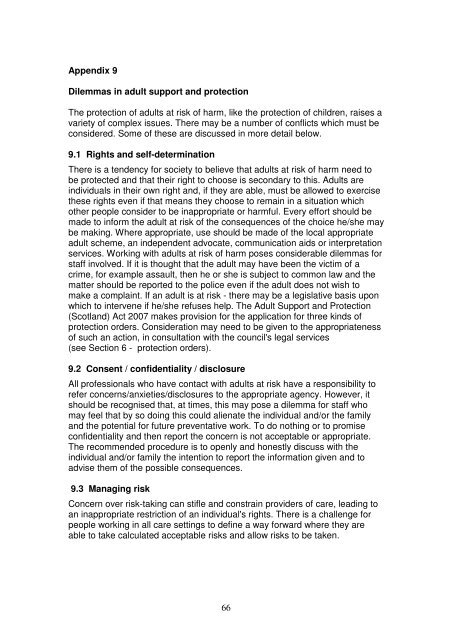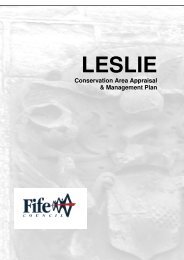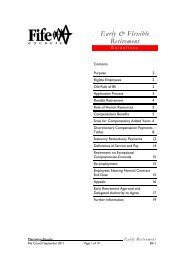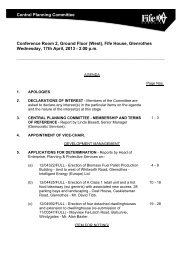Fife Multi-Agency Adult Protection Guidance - Home Page
Fife Multi-Agency Adult Protection Guidance - Home Page
Fife Multi-Agency Adult Protection Guidance - Home Page
Create successful ePaper yourself
Turn your PDF publications into a flip-book with our unique Google optimized e-Paper software.
Appendix 9Dilemmas in adult support and protectionThe protection of adults at risk of harm, like the protection of children, raises avariety of complex issues. There may be a number of conflicts which must beconsidered. Some of these are discussed in more detail below.9.1 Rights and self-determinationThere is a tendency for society to believe that adults at risk of harm need tobe protected and that their right to choose is secondary to this. <strong>Adult</strong>s areindividuals in their own right and, if they are able, must be allowed to exercisethese rights even if that means they choose to remain in a situation whichother people consider to be inappropriate or harmful. Every effort should bemade to inform the adult at risk of the consequences of the choice he/she maybe making. Where appropriate, use should be made of the local appropriateadult scheme, an independent advocate, communication aids or interpretationservices. Working with adults at risk of harm poses considerable dilemmas forstaff involved. If it is thought that the adult may have been the victim of acrime, for example assault, then he or she is subject to common law and thematter should be reported to the police even if the adult does not wish tomake a complaint. If an adult is at risk - there may be a legislative basis uponwhich to intervene if he/she refuses help. The <strong>Adult</strong> Support and <strong>Protection</strong>(Scotland) Act 2007 makes provision for the application for three kinds ofprotection orders. Consideration may need to be given to the appropriatenessof such an action, in consultation with the council's legal services(see Section 6 - protection orders).9.2 Consent / confidentiality / disclosureAll professionals who have contact with adults at risk have a responsibility torefer concerns/anxieties/disclosures to the appropriate agency. However, itshould be recognised that, at times, this may pose a dilemma for staff whomay feel that by so doing this could alienate the individual and/or the familyand the potential for future preventative work. To do nothing or to promiseconfidentiality and then report the concern is not acceptable or appropriate.The recommended procedure is to openly and honestly discuss with theindividual and/or family the intention to report the information given and toadvise them of the possible consequences.9.3 Managing riskConcern over risk-taking can stifle and constrain providers of care, leading toan inappropriate restriction of an individual's rights. There is a challenge forpeople working in all care settings to define a way forward where they areable to take calculated acceptable risks and allow risks to be taken.66
















